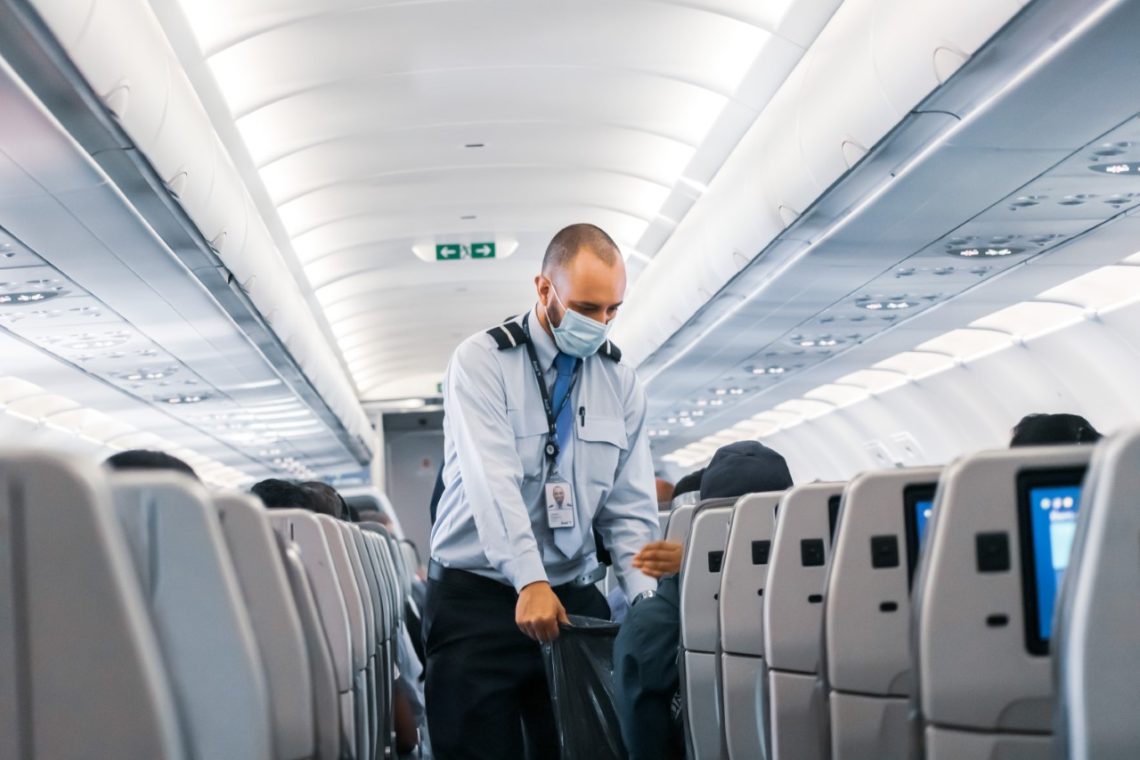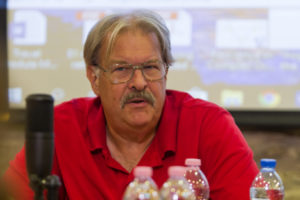Research & Studies

Flying Home
April 8 Getting Ready and Last-minute Drama

I took my PCR test this morning – my fourth PCR test since the end of January. The organization of the testing site and the professionalism of the staff was truly impressive. Within 2 hours I got a message that the sample had been sent to the lab, so I expect results this evening or tomorrow morning. Then I can get the results printed out tomorrow sometime.
Meanwhile, Zsuzsa just wrote that the tennis coach she takes lessons with has tested positive. She had only one instance when she was closer than 1.5 m last week when she had a lesson, and she has had the first dose of the Pfizer vaccine (second dose scheduled for 14 April), so I do not think she is infected. She is trying to arrange a RAPID test today. If she does not have a negative test result when I arrive on Thursday, I will have to go to a hotel until she is negative. I am scheduled for my first dose on Friday. Meanwhile, she cannot play tennis and cannot work until she knows. And if she is positive, Andris will need to be tested and the school notified, and the tennis club near our condo will need to be notified, and all the schools where she took photos last week will need to be notified.
I got my PCR test at 09:30 my time. Two hours later I got a text message that my samples (oral and nasal) had been sent to the lab. Then at about 15:30, I got a message from Zsuzsa saying that the tennis pro she takes lessons and clinics with has tested positive for COVID. She has had the first vaccine dose and is scheduled for the second one on the 14th, but that is no guarantee of protection. She managed to find a lab where she could schedule a Rapid test at 18:00 my time.
At 17:30 I received a text and email message that my PCR test was negative, so I am cleared to fly the next day.
Finally, at 19:00 Zsuzsa received news that her Rapid test was negative. This means we do not have to participate in what is called contact tracing: If she had been positive, I would have to go to a hotel (at my own expense) to quarantine until she tested negative. She would have to inform everyone with whom she played tennis in the previous week and the club where she uses the gym facilities, even though she was masked and distanced. She would have to inform her employer – taking off work until she was negative, forcing all employees to get tested, informing all the schools she visited taking school photos in the previous week, who would then have to have all staff and students tested. She would have to have her youngest son tested and his school informed. Full contact tracing would also involve informing every store she visited to buy food and home supplies.
April 9 Travel Day
Budapest Airport
The airport is still closed down except for a few takeaway coffee places and a couple of stores; more people than in early February, but still mostly deserted. Business Class lounges
remain closed. My PCR Test document was checked at the check-in desk but not asked for after that. As indicated in emails I received from both Delta and KLM, I no longer required a RAPID test taken at the airport, so long as I was only connecting through Amsterdam and not trying to stay in the Netherlands. Check-in was very smooth with very few people in the airport at 0.50.
The general mood inside the terminal boarding areas was subdued, with none of the positive sense of anticipation that is rapidly becoming nostalgic. No young people heading out on an adventure or for studies abroad. No business people looking forward to successful business meetings followed by comradery over drinks and fine food in an international setting. No last-minute shopping for family or loved ones at home. No sense of homecoming in the offing.
Flying to Amsterdam, the person in the seat next to me turned out to be an American actress from Seattle, who had been in Budapest filming a science fiction film. She described the multi-national production team (if you are from South Africa, you are lighting, if you are from France you must be logistics, and so on), and the quarantine/testing bubble they lived in. She was returning to Seattle for the same reason I was returning to Asheville – she was not cleared to be vaccinated in Hungary, though she was working legally there. At one point she laughed and told me that as soon as she was 14 days past her second vaccination dose, she would be returning to Budapest for a single day of filming. While being personally inconvenienced, we both agreed that countries had the right and responsibility to vaccinate their own citizens first. This is the early emergence of the new normal.
Amsterdam Airport
Schiphol Airport had many more people than in early February – perhaps 50% of what I remember of pre-COVID times (January 2020). This is the first time there was a line at passport control but it all moved far more rapidly than pre-pandemic times. More than half the restaurants were open (compared with a single Starbucks two months ago), and the Business Class lounges are open (though with significant reduction and modification of services to ensure distancing and hygiene).
At the departure gate for my Delta flight to Atlanta, I was asked to show the PCR test and an extra piece of paper now required by Delta Airlines. This is a 1-page document I had to print out and sign, saying that I have had a negative PCR test (see the PCR test printout) or that I have recovered from COVID and been cleared by a physician (see document). Another contribution by the Department of Redundancy Department.
Unlike the outbound flight two months ago when there were only 87 people on the entire plane, the flight from Amsterdam to Atlanta is about 50% full. As I began chatting with people, I found that many were Americans working in various European countries who were all returning to the US to be vaccinated as they were excluded from vaccination programs in the countries where they were working. I have begun to wonder if Americans would have been treated the same way prior to the Trump administration. This surge of passengers forced Delta to temporarily suspend its policy of leaving every other seat open, so there was significantly less distancing than two months ago flying in the opposite direction.
Atlanta Airport
The flight arrived more than an hour early, but since I have one more connection, this only means that I would be sitting in the airport an extra hour. Usually when a flight is that early,
it is due to heavy tailwinds accompanied by substantial turbulence. In this case, the flight was uniformly smooth, with the seatbelt sign coming on only for the last hour or so as we (quite successfully) flew in and around the usual early spring thunderstorms.
The first thing I experienced was a significant change in Global Entry since last autumn, the last time I re-entered the US. The procedure for Global Entry (a rapid pass through Customs and Immigration for frequent overseas flyers who are willing to have a Homeland Security background check) is normally this: go to a kiosk, touch the screen where it says “begin”; insert your passport for a scan; look up for a photo to be taken; answer a number of questions about your travel; put your fingers on the fingerprint pad; collect the printout; go to the Customs and Immigration agent who will take the printout and say “welcome home.” This time, I went to the kiosk, touched the screen, was asked to put my head inside an outline of a human head on the screen, had a photo taken (this time I remembered to remove my mask), received a printout and went to Customs and Immigration. The officer looked at my passport, asked if I had anything to declare and waved me through. Just as visions of Big Brother began to surface in my brain, I realized that there are trying to minimize the number of times each person touches a surface.
I picked up my bags inside the international area, then re-checked them outside and went through security, which did not include asking to see my PCR test. More people than two months ago, the first time I have seen congestion at security screening similar to pre-COVID times. At least people are masking, and most people pay attention to the distancing icons on the floor.
Out into the domestic area, I hopped onto the tram to the terminal where my flight to Asheville was due to depart. Half the stores and half the restaurants were open, and the Business Class lounges open, though with the same significant reduction and modification of services to ensure distancing and hygiene. The airport was possible half full, including a lot of students coming and going for spring break.
The very short flight to Asheville was…very short and I was happy to see my uninfected wife and youngest stepson awaiting me.
April 10
This morning, I was scheduled for my first Pfizer vaccine. I arrived at 0855 for my 0905 appointment. All was well orchestrated, I was in and out in 25 minutes, 15 minutes of waiting after the jab to make sure I had no allergic reaction, 8 minutes of filling out forms – which included questions about any history of clotting problems – and 2 minutes of talking to the nurse and getting the first Pfizer shot. I was given a vaccination certification card and an appointment for April 30. During the next 48 hours, I dealt with a sore arm at the point of injection which had disappeared by Sunday evening (so I was pain-free on Monday for my 70th birthday).
At noon, I went to the got my laptop checked out – it is now classified as a “vintage” machine by Apple, which means it would be almost as much to do the necessary repairs as to buy a new one. My desktop computer, of the same age, is in far better shape because I have done more writing with the laptop at iASK and elsewhere than the desktop.
April 12
For my 70th birthday, I found myself all ready and able to continue “working from home” during the lockdown, home now being Asheville rather than Göd, with my wife and youngest stepson rather than with my two older stepsons. All in all, a pretty smooth transition. I do regret
not being able to benefit from the in-person elements of life at iASK. But I appreciate the short time we had before the lockdown, including finally spending some time working in the Festetics House, something every evolutionary biologist should try to do. And I appreciate the internet-based technology that allows me to continue to participate in iASK events (though sadly not the Tuesday morning coffee meetings which happen at 03:00 my time) while also making good progress on my own projects.
Daniel R Brooks (USA–Canada 2016, 2017, 2018, 2019) is Professor Emeritus at University of Toronto, a Fellow of the Royal Society of Canada and at the Linnaean Society of London and a senior visiting fellow at iASK.
© 2017-2023, All Rights Reserved